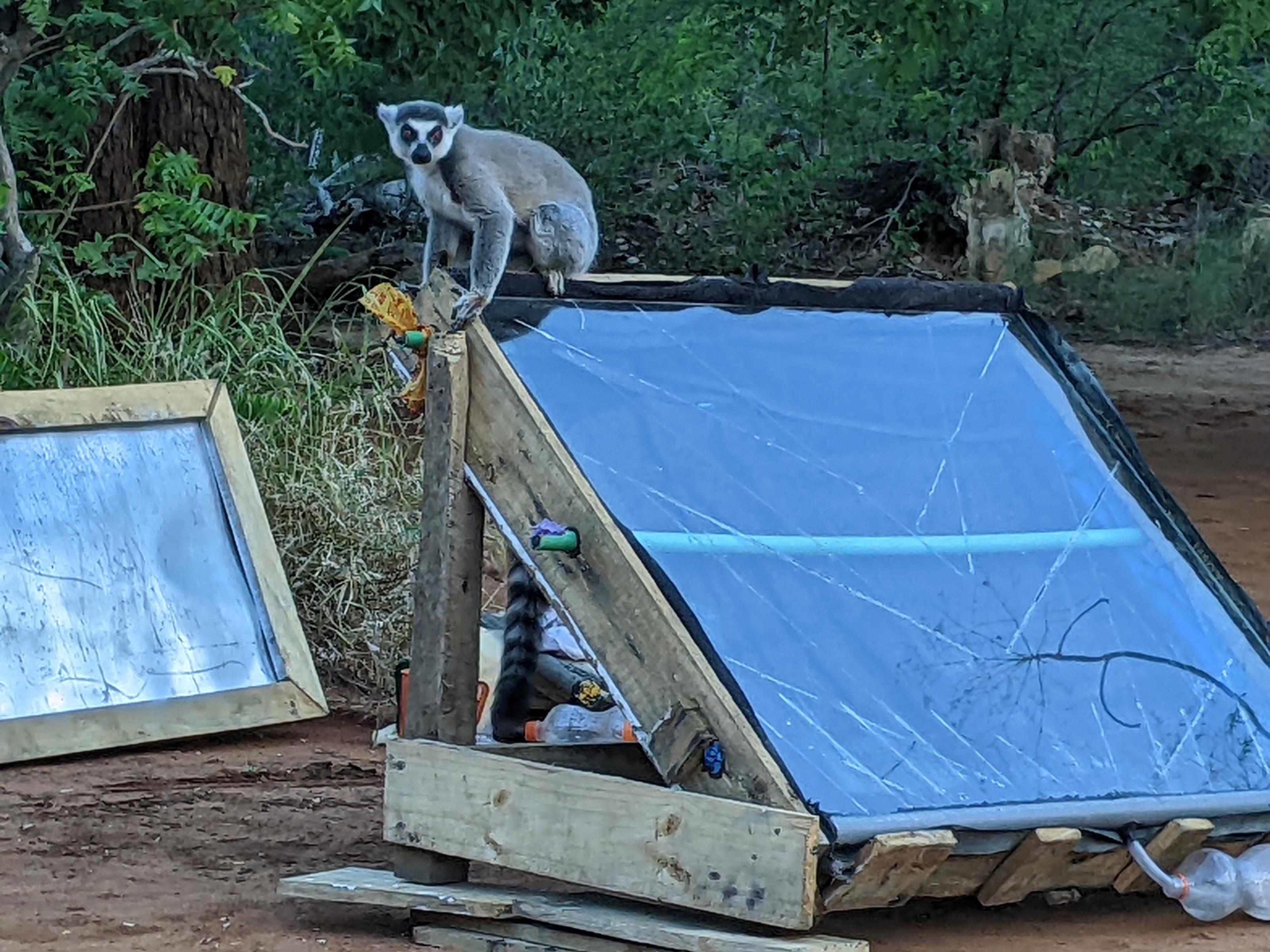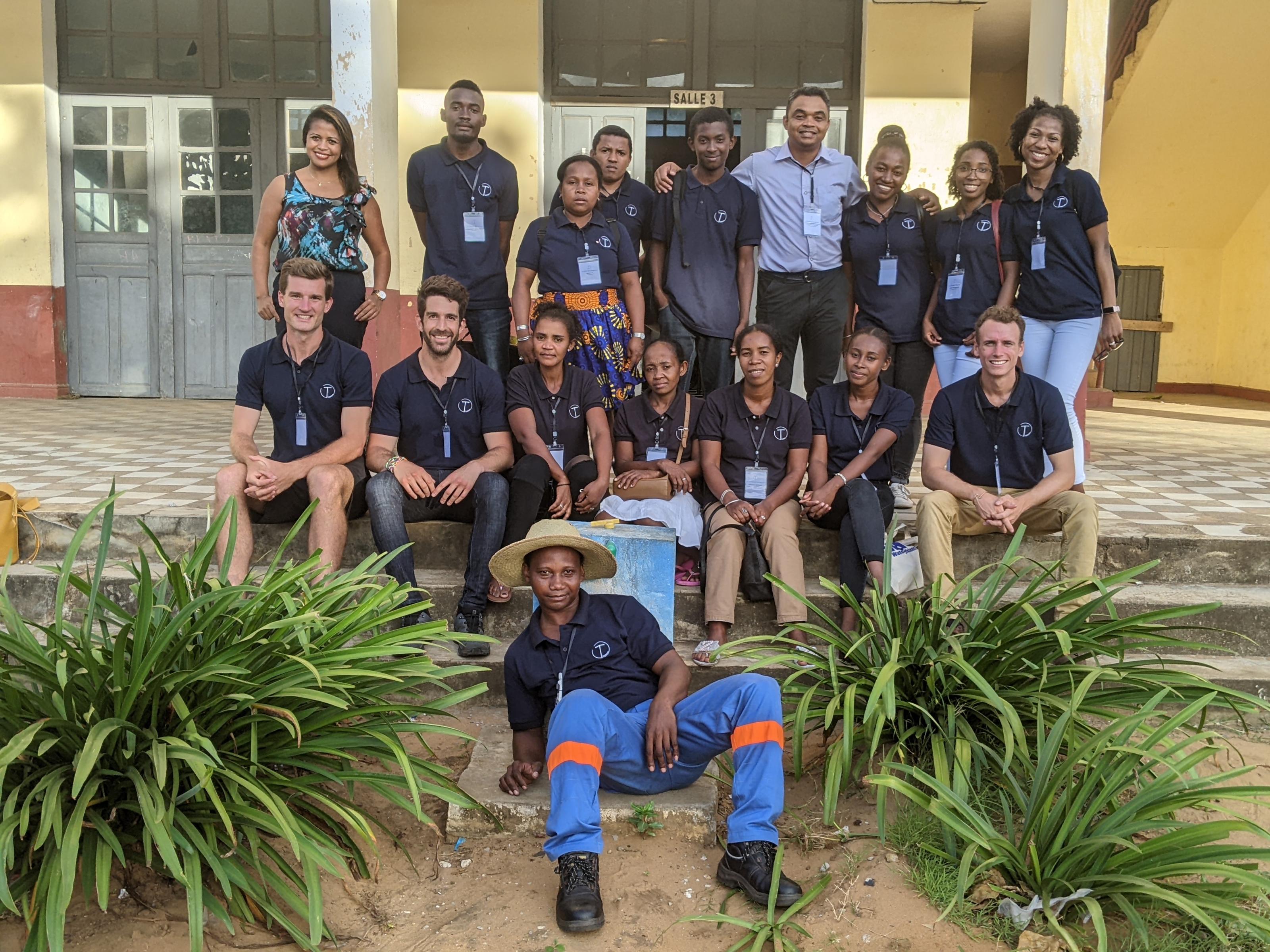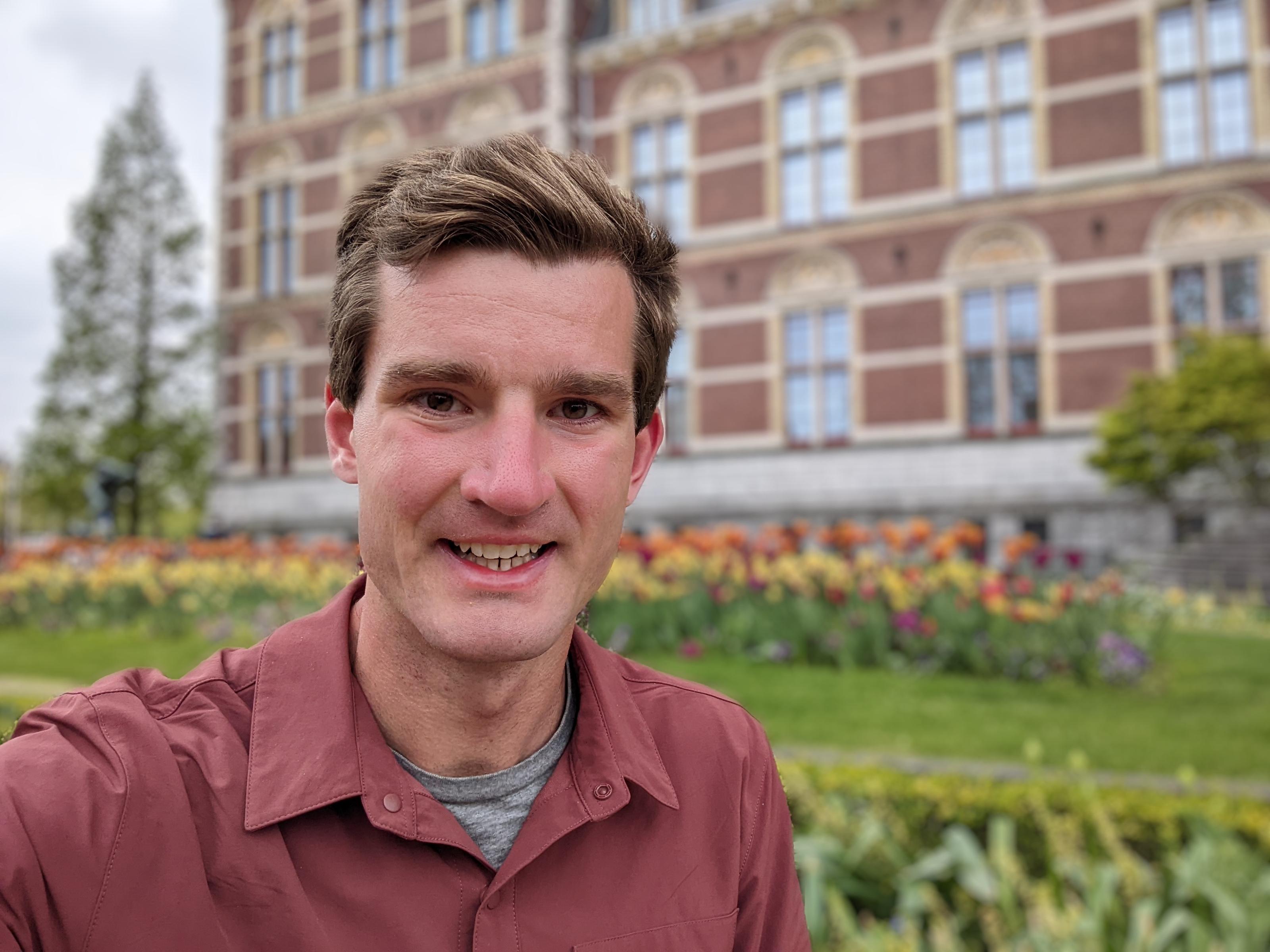Karl Zimmermann
Passionate for science communication (and a finalist in the 2019 UBC Three Minute Thesis competition), Karl's self-ascribed mission is to find better ways of translating drinking water technologies into a community’s safe drinking water solution. With the PSI, Karl will create a short film documenting the experiences of community water champions to learn what tools help drive success in community water partnerships.
Research description
Tools for Water Partnerships: Every community is unique: their culture, history, water resources and role of women to name a few. Water treatment strategies must be adapted to local contexts, a process called ‘localization’, which requires (i.) understanding the community’s experiences, and (ii.) technical expertise of water treatment options. From a lack of financial or technical resources, communities often rely on outside help for the latter. But aid organizations may specialize in only a single technology or are tied to funding. Often, a technology is imported from a lab to many communities who are told which problems it will solve, although its broad applicability fails to address any community’s specific needs. The Import Model falls short, because even a brilliant technology will fail if the community doesn’t believe in it. My vision for localization is the creation of water teams comprising water users, operators, local administration, technical experts (i.e., engineers), aid organizations, etc. Water teams are built on trusting partnerships which enable interdisciplinary collaborations. Shifting the focus to empowering communities using the Partnership Model, this research journey will learn the tools to facilitate the partnership model by listening to the stories of what tools created success in past water partnerships, as told by community water champions. It is only appropriate that these stories are told through the water champions’ own voices and languages: photography and videography will allow for sharing the water stories and partnership recommendations in the participants’ own voices and perspectives.
What does being a Public Scholar mean?
Through my engineering studies, I learned the technical skills of designing effective and efficient chemical engineering processes. After getting into the water treatment field, I learned that for many communities in the world, the challenges to finding safe water solutions are not from a lack of technologies, but the use of inappropriate means of finding a technology to implement. As a UBC Public Scholar, I will listen and learn from champions of successful water projects to learn how to build partnerships with stakeholders. While my engineering PhD programme is providing me a strong technical background, this project will help me to develop the community engagement skills to excel as a global leader in safe water promotion.
In what ways do you think the PhD experience can be re-imagined with this Initiative?
The UBC Public Scholars Initiative provides the opportunity to take a leap beyond your disciplinary boundaries and outside of your comfort zone. While a traditional engineering doctorate prizes technical proficiency, PSI support will allow me to visit communities and learn how to prioritize listening and learning, rather than assessing technologies; this research brings an innovative approach to bridging the innovation-implementation gap in engineering.
How do you envision connecting your PhD work with broader career possibilities?
I am passionate about helping communities find their safe water solutions. PSI support offers me the unique opportunity to be a practitioner who can bridge the gap between engineering and social sciences. Through my PhD studies in environmental engineering, I am learning the technical skills to find and assess drinking water treatment technologies and WASH interventions. This project will allow me to develop these partnership-building skills, supporting my career in global WASH initiatives, while also showing the value of engineering doctoral scholarship to the development field. Gaining this experience at the start of my career will enable me to begin trying new ideas right away.
How does your research engage with the larger community and social partners?
This research focusses on listening and learning to discover effective strategies to foster partnerships with end-users, technical experts, local community leadership, outside water practitioners, and others involved in the process of establishing safe drinking water. By learning from end-users and champions of previous successful case studies, we will engage with the most important stakeholders. The findings will be shared with the research participants, but also with the broader Water, Sanitation and Hygiene community to share our recommendations on how to build more effective water partnerships. Most importantly, by embracing an inter-disciplinary approach to water, we aim to unite community and social partners with technical experts to collaboratively discover safe drinking water solutions.
Why did you decide to pursue a graduate degree?
At the conclusion of my undergraduate degree in chemical engineering, I had discovered the field of water treatment. I was enthralled by how relatively simple technologies from centuries ago can still be used today to make dramatic improvements to public health. I saw that becoming an innovator and leader in this field would require learning from a diverse range of cultural and academic leaders to embrace global perspectives and a truly interdisciplinary approach. I sought graduate studies as an opportunity to learn from established experts and be given the opportunity to discover where my own passions were. My Public Scholars research is a manifestation of this goal: after two years I found my interests within the water sector lie in supporting developing communities to discover their safe water solutions, and that I can approach this with a unique engineering perspective.
Why did you choose to come to British Columbia and study at UBC?
The University of British Columbia is a globally respected school, which is very useful when recruiting speakers for seminars or asking to chat with global water leaders. My PhD supervisor, Dr. Madjid Mohseni has pioneered the Community Circle approach of fostering partnerships with First Nations communities to find safe water solutions. While the core of my engineering studies involves building our technical understanding of water filters, I cherish the opportunities to work with communities, to learn from Dr. Mohseni and our other partners, and to see how engineering and social sciences can combine to create sustainable drinking water solutions. The opportunity to be involved with community work through RESEAU Centre for Mobilizing innovation was unique to UBC, and an opportunity that I hold in high esteem. Of course, Vancouver as a city is also a strong component of the choice to attend UBC. Since moving here, we spend weekends on bikes, skis, in tents, on the beach, standing in a river with a fishing rod or logging miles on the Fraser River with the UBC varsity rowing team. UBC offers the perfect combination of quality of life and academic prestige.
What is it specifically that your program offers that attracted you?
I knew that I wanted to study water treatment, and that falls under either Civil or Chemical Engineering. With my background in chem eng and an interest to investigate the underlying principles of the technology, I decided on chemical and biological engineering at UBC. Further, my eventual PhD supervisor runs a World-class research facility and a research project that was very interesting to me. Even better, he offered opportunities to become involved in community projects, which allows me to begin helping others even before concluding my studies at UBC.
For you, what was the best surprise about graduate life, about UBC or life in Vancouver?
Vancouver is amazingly situated such that the weather in the City is always beautiful (unless in January rain), but within two hours' drive you can be in snow for skiing in the winter. Or you can drive east to experience the breathtaking interior mountains and the Okanagan. The people and culture in Vancouver are very friendly and activity-oriented and people love to tell you about their last adventure.
What aspect of your graduate program do you enjoy the most or are looking forward to with the greatest curiosity?
I enjoy meeting other people at conferences and to learn about other leading research that is going on around the country, and also to describe our work in promoting clean drinking water and its importance in the promotion of public health. I look forward to conferences to present our findings and meet with the other leading researchers in our field.
What do you see as your biggest challenge(s) in your future career?
Obtaining contacts to find the right location to start my career. I have a specific goal of working in international development projects for the promotion of clean water. My biggest challenge at this point is to find a starting point to launch my career!
How do you feel your program is preparing you for those challenges?
UBC creates an environment that encourages innovative research. We are encouraged to push boundaries and test new ideas. By taking those leaps and embracing challenging research, we are able to achieve lofty outcomes. This shows the abilities of UBC graduate students to set and achieve goals, which is very useful for future careers. Using the research as a basis, I have been encouraged to apply our findings to real-world scenarios through partnerships with rural BC communities to improve their drinking water quality. To this end, I am beginning to gain the skills and network that I will use later in my career.
What aspects of your life or career before now have best prepared you for your UBC graduate program?
Adaptability is valuable as a graduate student. Things will not work as anticipated, and the plan will change, often with nothing you can do. You need to be able to adapt to the new situation and make use of the results you are going to get. If your experiment doesn't go as planned, you need to have a vision of the overall direction and purpose of your research so that you can adapt the plan to continue your studies in the forward direction and to achieve meaningful outcomes for the improvement of society.
What do you like to do for fun or relaxation?
Read books (but I'm notorious for falling asleep two paragraphs in). I love adventuring in the backcountry: camping in the Coastal Mountains alpine in summer and backcountry skiing in the winter. Biking out to Steveston or Deep Cove, running the length of Pacific Spirit Park or rowing on the Fraser River with the UBC Varsity Rowing Team.
What advice do you have for new graduate students?
Think about graduate school as a gift to you. While you surely have lots of work towards attaining your thesis objectives, you can also have the opportunity to pursue diverse other interests that you have. Often, students simply toil in their research labs and basement desks for 4-6 years. But if you view graduate school as an opportunity, you can prioritize escaping the rigamarole of your studies and pursue (or discover for the first time!) your passions. For me, I started getting connected with other water researchers from across UBC. We started a UBC Future Waters to share our water stories. We also started a seminar series, which has become a global event through which I met countless wonderful global water leaders. Connections I made during these 'extra-curriculars' have led to me discovering the WASH development field, traveling to Madagascar and embarking on a global research journey to build water teams. If you embrace graduate school as an opportunity, and you seize every chance to capitalize on it, it will shape your life in so many ways that your thesis research alone could not.







